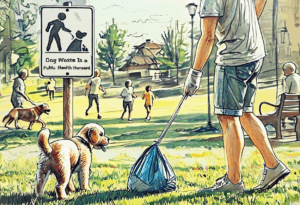
Climate change doesn’t affect everyone the same way. Some communities are hit much harder because of things like historical inequalities, financial struggles, and environmental injustices. These communities, already facing serious challenges, are often the ones that feel the impacts of climate change the most. That’s where climate equity comes in. Climate equity is about making sure that climate solutions help everyone fairly, especially those facing the biggest risks and challenges.
EPA’s Role in Promoting Climate Equity
The Environmental Protection Agency (EPA) is working to make sure that everyone has a fair shot at dealing with climate change, especially communities that are hit the hardest. The EPA is bringing people together across communities and government levels to address the systemic issues that increase vulnerability. Climate equity means creating solutions where everyone benefits, no matter their background, race, age, or income.
Key Principles for Climate Equity
To achieve climate equity, governments and communities are focusing on a few main ideas:
- Engage: It’s important to include voices from all backgrounds, especially those most affected by climate change. By talking to community leaders, Indigenous knowledge holders, and others, we can make sure that solutions actually work for the people who need them most.
- Share: Giving communities easy access to information and resources empowers them to prepare for climate impacts. When people have the data they need, they can create stronger local solutions that make a real difference.
- Build: Solutions that consider equity make communities stronger and more resilient. For example, adding green spaces, improving energy efficiency, or creating better public transportation can improve everyone’s quality of life. These actions not only build resilience but also reduce pollution and strengthen neighborhoods.
- Prepare: Climate equity also means planning for emergencies with everyone in mind. When communities consider the unique needs of each group during a crisis, like offering language support or accessibility services, they create more effective disaster responses.
Why Climate Equity Is Urgent
Climate change impacts people differently, often hitting low-income groups, racial minorities, and the elderly the hardest. Unfortunately, those with more resources have greater protection from climate impacts, which only makes the gap between groups bigger. Without climate equity, we risk worsening inequality, losing lives, and facing economic problems and even migration crises.
But there’s also a bright side. Strong climate actions, like investing in renewable energy and building resilience, can bring huge benefits. These actions could help improve food security, create millions of jobs, reduce energy costs, and lower air pollution, which could save lives by 2030.
The World Resources Institute’s (WRI) Work on Climate Equity
The World Resources Institute (WRI) is one of the organizations working on climate equity, connecting climate, equity, and development. WRI collaborates with policymakers to create fair climate policies and supports advocates working toward just climate solutions. Their research and projects help vulnerable communities and provide ideas for a zero-emissions economy that benefits everyone.
WRI also partners with the United Nations and other global groups to address fairness challenges between and within countries. They focus on aligning climate action with local needs, which helps ensure that climate efforts support sustainable growth everywhere.
Conclusion
Climate change isn’t just about reducing carbon emissions; it’s also about addressing the social inequalities that make its impacts worse for some communities. Climate equity helps make sure that climate action benefits everyone and creates a fairer, more resilient future. By focusing on equity, we can build a sustainable world that lifts up all communities, leaving no one behind.
Works Cited
United States Environmental Protection Agency. “Climate Equity.” EPA, https://www.epa.gov/climateimpacts/climate-equity.
World Resources Institute. “Climate Equity.” World Resources Institute, https://www.wri.org/initiatives/climate-equity.
The views and opinions expressed are those of the authors and do not necessarily reflect nor represent the Earth Chronicles and its editorial board.




